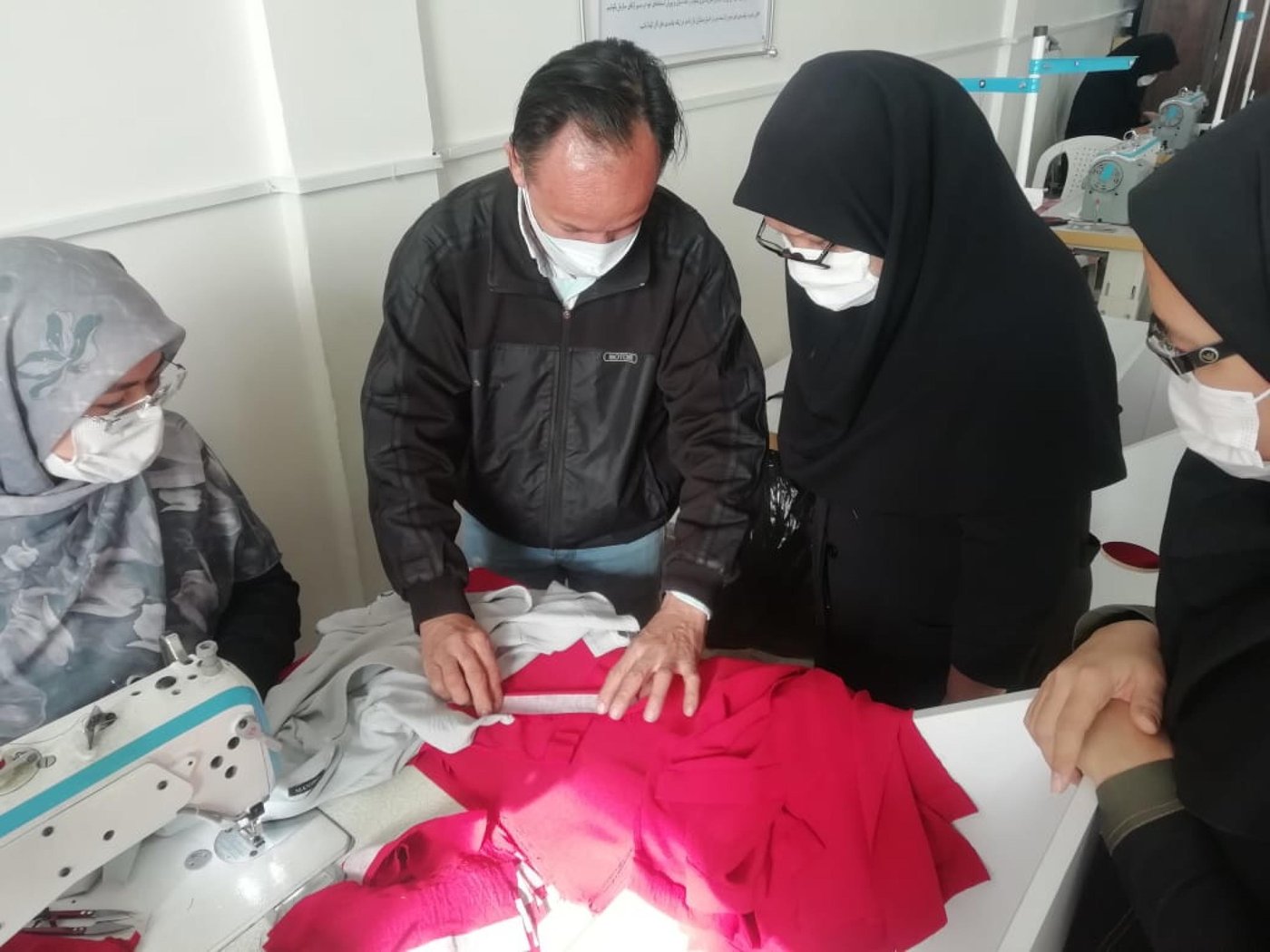When Simin was two years old, her family fled to Iran from Balkh, Afghanistan.
She dropped out of school and got married at a young age, so she never had the chance to learn and be employed.
“I was a housewife when I got diagnosed with cancer,” Simin shares while tears drop down her cheeks. She doesn’t have health insurance, which has made paying for treatment incredibly difficult.
“I was desperately looking for a job when I passed by the Society for Recovery Support’s (SRS) office in Mashhad. I didn’t know what they were doing but I went into their office and told them my story.”
The Norwegian Refugee Council (NRC), alongside our local partner SRS, have been delivering tailoring workshops for women in the local community. In the workshop, participants are taught how to tailor, and they can earn an income from what they sew.
Read more about how community representatives work as intermediaries between SRS and Afghan refugees
Simin was invited to volunteer as an SRS community representative, and later as a tailoring employee. There is a glimpse of excitement in her face when she talks about her journey with SRS.
“I didn’t know tailoring when I first joined. But now with the tailoring courses I have received, I know how to work with all the machines in the workshop,” she shares with a smile.

Struggling breadwinner
Sameneh, another woman living in the Mashad community, is a weaver by profession. But she couldn’t find any work. “My father passed away and I was unemployed,” says Sameneh. “I then had to take care of my two sisters and mother when Covid-19 started.”
Samaneh was struggling to make ends meet until she was offered a job at NRC and SRS’ tailoring workshop. “They told me I can start working and learn tailoring. I didn’t have any other skills so that was a great chance,” she says.

Sameneh is joyful when she talks about the training she has successfully completed. “I participated in all the training provided, from tailoring to business skills. They were all useful. I would like to take dress making courses in the future,” Samaneh adds.
The establishment of the tailoring workshop and trainings are generously funded by the European Union, the Danish International Development Agency (DANIDA), and the Norwegian Ministry of Foreign Affairs (NMFA). The European Union is also financially supporting activities and experience sharing between NRC and SRS on how to better address Afghan’s needs in Iran.
Earning an income
Samaneh and Simin are currently making clothes based on the orders the workshop receives. For now, SRS helps them manage financial issues, staffing and identify the orders along with the marketing focal point, who is a member from the Afghan community. NRC supports SRS in managing the workshop to make sure there is no unmet need for the employees.
Both women refer to the trainings as “useful” and “practical” and Simins adds: “The business training workshop gave me ideas to expand my skills in the future and start a business. It’s important for women to have an income of their own.” She seems motivated when sharing this. Right now, they get various orders depending on the season. The trousers, shirts, coats and jackets they have made are now being sold in the market.
In addition, NRC and SRS are providing transport to and from the workshop, psychosocial support sessions and a childcare space in the workshop for all their employees. It is a relief for Samaneh, Simin and the rest of their co-workers to not have to worry about these other barriers, such as looking after their children.

A sustainable workshop
“I tell other women in the workshop to believe in themselves,” says Simin. With her and Samaneh’s interest in continuing this business, they believe the workshop can be a great place for other Afghan women like them. “All women get along so well,” says Sameneh.
As the tailoring workshop is running smoothly, NRC and SRS are identifying the best approach to have this workshop run by Afghan women themselves only – through a phased-out approach. Afghan women will be further supported with skills and knowledge, including with help from the marketing focal point.
NRC in Iran
Since 2012, NRC Iran has been assisting displaced Afghans in Iran as well as their Iranian host communities. We work to improve protection and access to basic humanitarian services across ten provinces (Alborz, Tehran, Yazd, South Khorasan, Hormozgan, Kerman, Razavi Khorazan, Marzaki, Semnan, and Sistan and Baluchestan). We also coordinate with NRC operations in Afghanistan.
Since 2020 we have significantly expanded our programmes to support the Covid-19 pandemic response.
Since mid-2021, NRC Iran has scaled its work significantly in connection with recent developments in Afghanistan, while maintaining all existing programmes in Iran.


